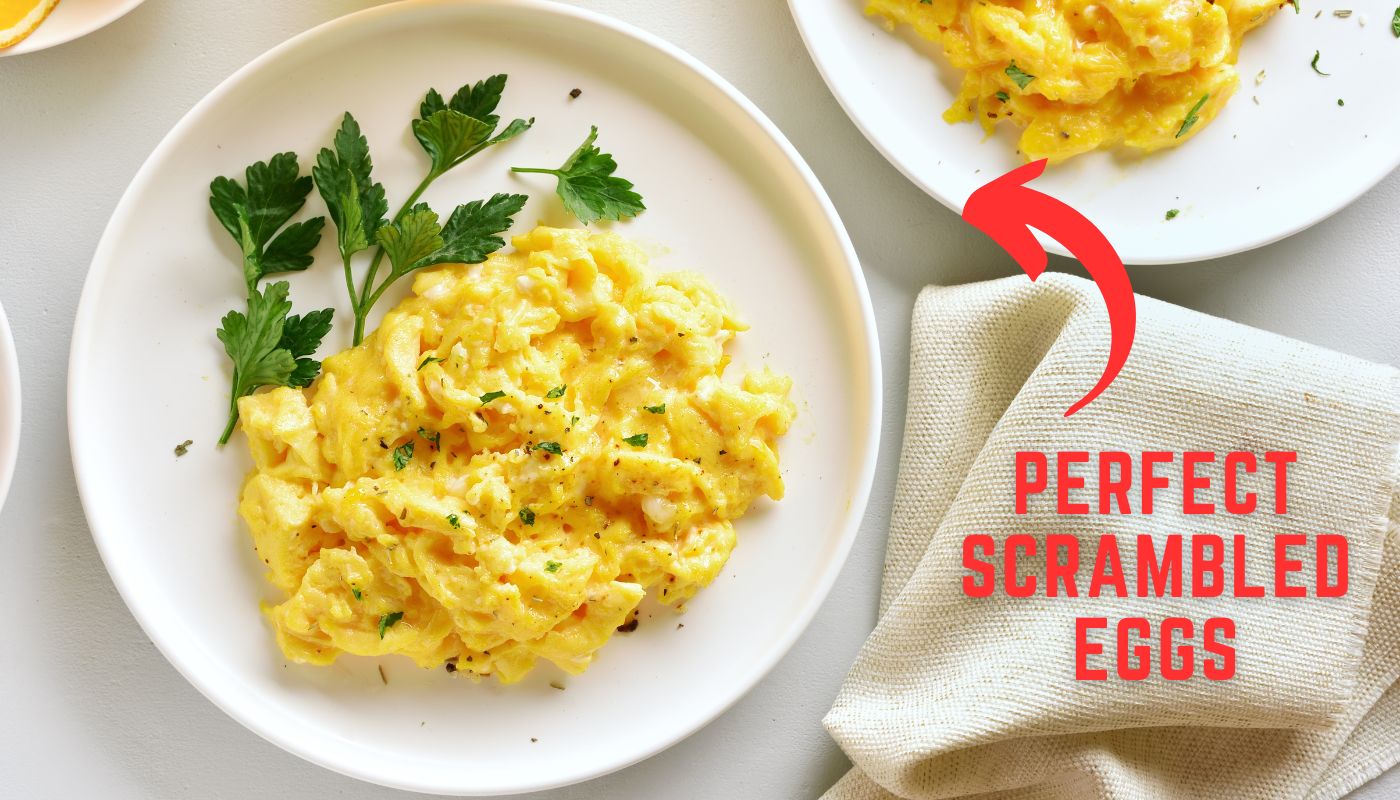Scrambled eggs are a versatile and delicious breakfast staple that can be made in minutes. Follow these easy steps to prepare fluffy, flavorful scrambled eggs at home.

Step 1: Gather Your Ingredients and Tools
To make scrambled eggs, you’ll need:
Ingredients:
- Eggs: Fresh and large eggs work best.
- Milk or Cream (optional): For added creaminess.
- Salt and Pepper: To taste.
- Butter or Oil: For cooking.
Tools:
- A mixing bowl
- A whisk or fork
- A nonstick frying pan
- A spatula
Step 2: Crack and Whisk the Eggs
Crack the eggs into a mixing bowl. Use 2–3 eggs per serving, depending on your appetite.
Optional Additions:
- Add a splash of milk or cream to make the eggs creamier.
- Season with salt and pepper to taste.
Using a whisk or fork, beat the eggs until the yolks and whites are fully combined. Whisking incorporates air into the eggs, making them fluffier when cooked.
Step 3: Heat the Pan

Place a nonstick frying pan over medium-low heat. Add a small pat of butter or a drizzle of oil to coat the bottom of the pan. Allow the butter to melt and sizzle lightly, but avoid letting it brown.
Step 4: Pour the Eggs Into the Pan
Once the pan is heated, pour the whisked eggs into the pan. Let them sit undisturbed for about 10–15 seconds to begin setting.
Step 5: Stir Gently
Using a spatula, gently stir the eggs, moving them from the edges toward the center of the pan. This helps cook them evenly and creates soft, fluffy curds.
Stirring Tips:
- Use slow, sweeping motions to avoid breaking the eggs into small pieces.
- For creamier eggs, stir less frequently; for smaller curds, stir continuously.
Step 6: Monitor Doneness

Cook the eggs to your preferred level of doneness:
- Soft Scrambled Eggs: Cook until just set but still creamy and slightly runny.
- Fully Cooked Eggs: Continue cooking until the eggs are firm and no liquid remains.
Remove the pan from heat just before the eggs reach your desired consistency, as they will continue to cook slightly from residual heat.
Step 7: Serve and Enjoy
Transfer the scrambled eggs to a plate immediately to prevent overcooking. Garnish with optional toppings like chopped herbs, shredded cheese, or a sprinkle of paprika for added flavor.
Step 8: Store Leftovers (If Any)

If you have leftovers, store them in an airtight container in the refrigerator for up to 2 days. Reheat gently in a microwave or on the stove.
Further Tips and Tricks for Perfect Scrambled Eggs
- Choose the Right Pan:
- A nonstick pan ensures easy cooking and cleanup.
- Use a pan size that matches the number of eggs you’re cooking.
- Use Low Heat:
- Cooking over low heat prevents the eggs from drying out or browning.
- Experiment with Additions:
- Add cooked vegetables, diced ham, or smoked salmon to customize your scrambled eggs.
- Mix in grated cheese for a gooey, indulgent twist.
- Avoid Overcooking:
- Overcooked scrambled eggs can become rubbery and dry. Remove them from heat while they’re still slightly glossy.

Common Mistakes and How to Avoid Them
- Problem: Eggs Stick to the Pan
- Solution: Use enough butter or oil and ensure the pan is nonstick.
- Problem: Eggs Are Dry
- Solution: Cook over lower heat and remove from the stove slightly early.
- Problem: Eggs Lack Flavor
- Solution: Season generously with salt and pepper before or during cooking.
Final Thoughts
Scrambled eggs are a simple and satisfying dish that can be tailored to suit any palate. With these tips, you’ll achieve perfect scrambled eggs every time. Enjoy them on their own, or pair them with toast, bacon, or fresh fruit for a complete meal!
